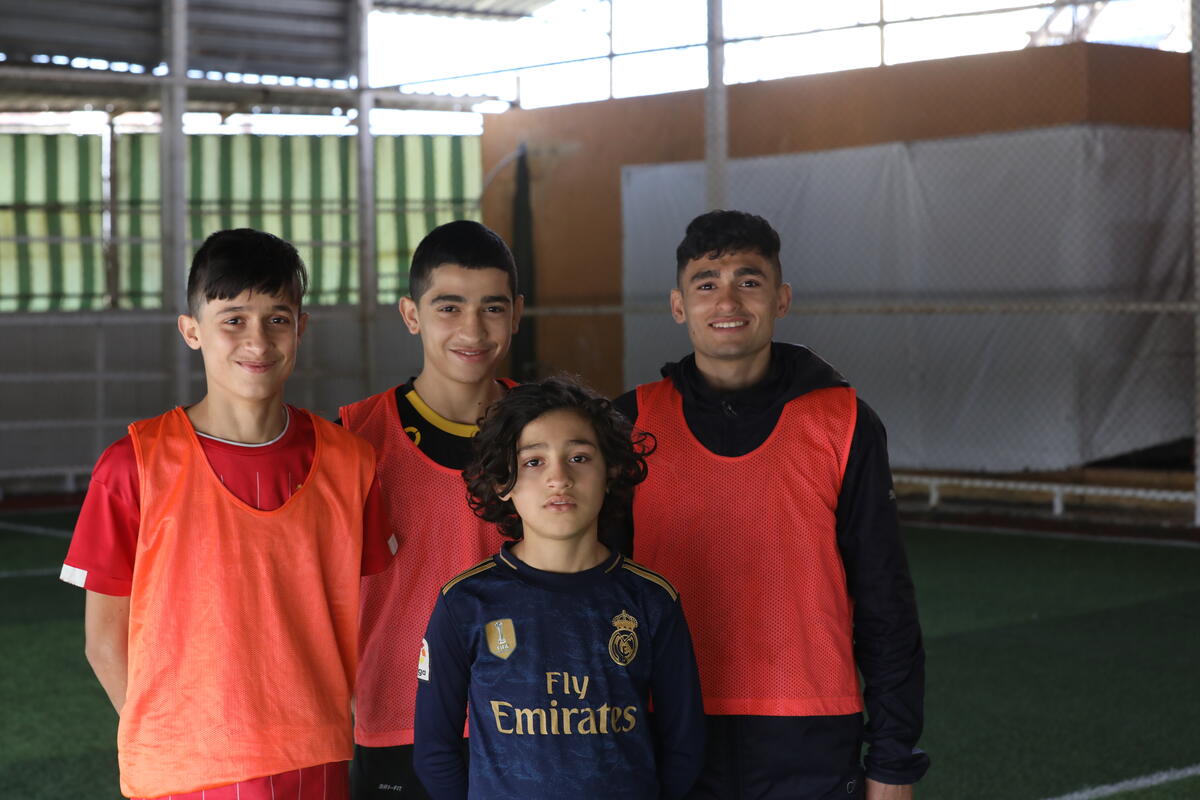UNHCR donates ambulance to help recovery of Sierra Leonean town
UNHCR donates ambulance to help recovery of Sierra Leonean town

KAMBIA, Sierra Leone, Aug 10 (UNHCR) - It was probably one of the longest ambulance calls in the history of Sierra Leone, travelling 148 km from Freetown to Kambia in the north. As the distant siren approached and bathed the town in its swirling blue light, the crowd greeted it neither with the relief of rescue at hand, nor with the dread reserved for a harbinger of doom.
Instead, they clapped.
The ambulance in question had left the Sierra Leonean capital last Thursday, racing for nearly five hours through bad roads and heavy rain to arrive in Kambia town, near the border with Guinea. The $35,000 vehicle was a donation from the UN refugee agency to Kambia, one of the poorest and most devastated areas during Sierra Leone's decade-long civil war.
Before the war, Kambia had been the country's richest rice-producing district because of its fertile swamps. But in 1998, rebel forces driven out of Freetown by West African peacekeepers invaded the north-western town, forcing villagers into Guinea, destroying the whole Kambia district and burning down its only hospital. The area was further devastated amid efforts by Guinean troops to repel rebel incursions into its territory.
Today, four years after the end of the war, Kambia has become a major area of return for Sierra Leonean refugees. Reconstruction projects are underway, with a new hospital opening last month. The hospital features an operating theatre, various wards, staff quarters and stores.
However, prior to the ambulance donation last week, medical emergencies outside Kambia town had been carried to the hospital on stretchers or motorcycles, depending on the gravity of the illness.
Kambia's District Council Chairman Usman Sheriff Fofonah lost his nephew after he was bitten by a snake in Mambolo village. The teenager died on a stretcher en route to the hospital, 37 km away, just a day before the ambulance arrived.
"The high rate of mortality in the district is attributable to late referrals due to the non-availability of ambulance services to transport patients to the hospital," confirmed Dr. Modupeh Wilson, the medical officer in charge of the hospital in Kambia.
Yahya Yillah, a local counsellor, noted that maternal and infant mortality rates were especially high because neither the stretcher nor the motorcycle was a suitable mode of transport for pregnant women or sick children.
The new ambulance is a welcome shot in the arm for the health care service in Kambia. "This will go a long way to minimise untimely deaths," said Justin Bangura, the Deputy Commissioner of the National Commission for Social Action, as he received the keys to the vehicle from UNHCR on Thursday.
He added, "After 10 years of massive destruction of both human lives and property, Sierra Leone badly needs assistance in its post-war recovery." Indeed, it is the poorest country in the world, according to the recently-released UN Human Development Index Report for 2004.
UNHCR has helped some 178,000 Sierra Leonean refugees to return home and implemented some 1,000 community empowerment projects nationwide to help them reintegrate in their home areas. In Kambia, the agency is involved in more than 60 such projects, including the building and rehabilitation of schools, clinics, water and sanitation facilities, as well as micro-credit schemes and skills training.
By Idrissa Conteh
UNHCR Sierra Leone









